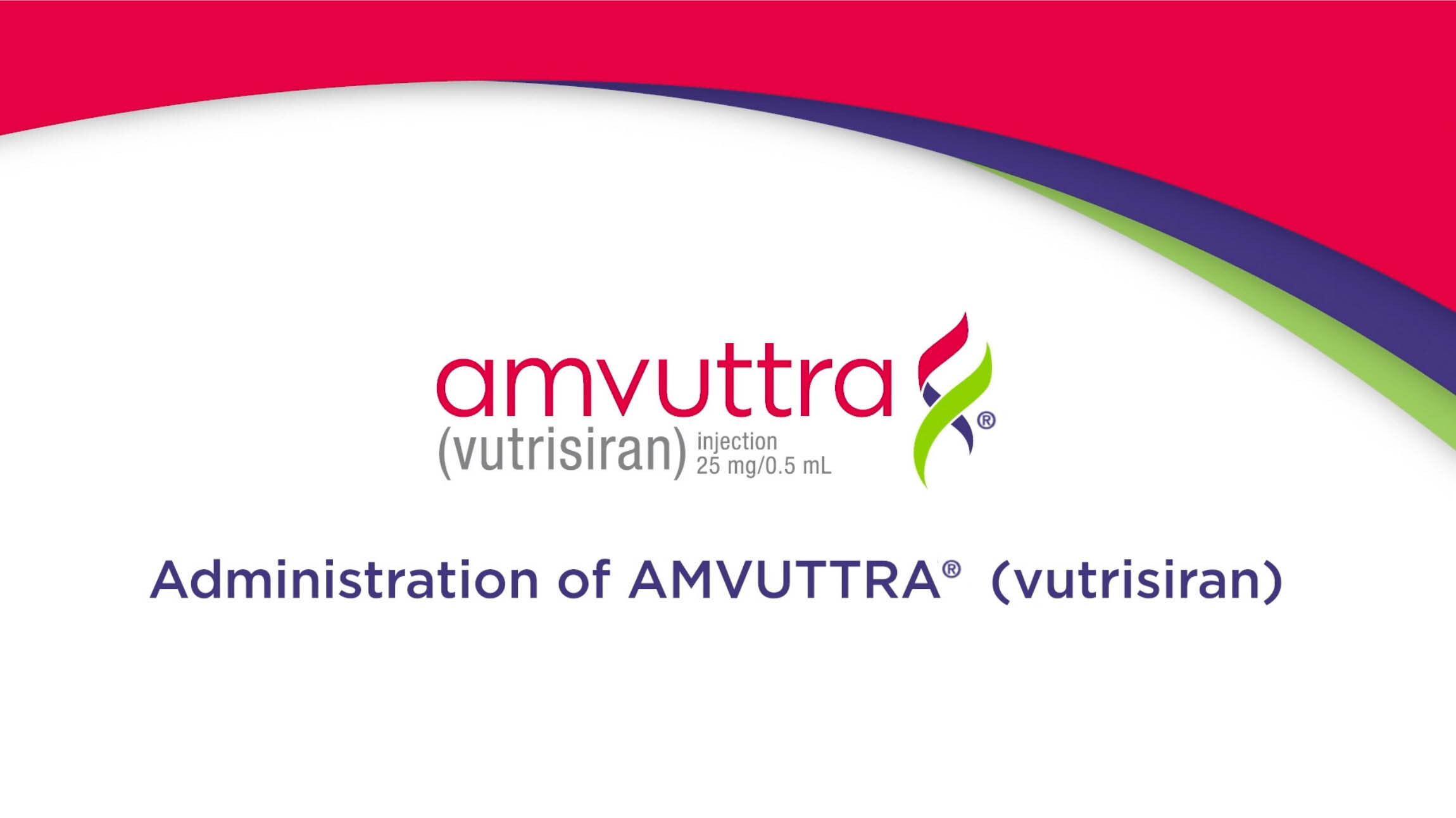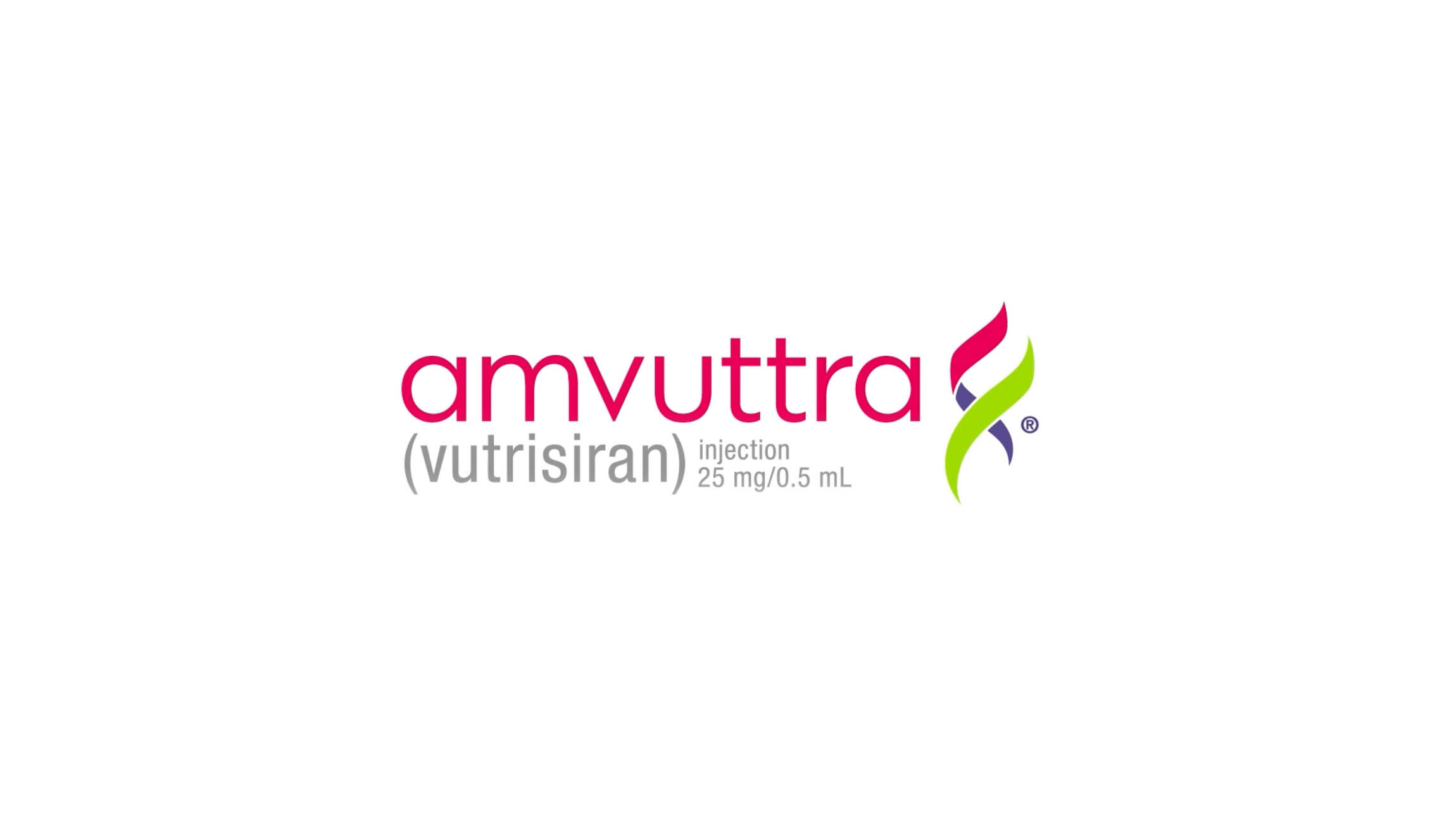Important Safety Information
Reduced Serum Vitamin A Levels and Recommended Supplementation
AMVUTTRA treatment leads to a decrease in serum vitamin A levels.
Supplementation at the recommended daily allowance (RDA) of vitamin A is advised for patients taking AMVUTTRA. Higher doses than the RDA should not be given to try to achieve normal serum vitamin A levels during treatment with AMVUTTRA, as serum vitamin A levels do not reflect the total vitamin A in the body.
Patients should be referred to an ophthalmologist if they develop ocular symptoms suggestive of vitamin A deficiency (e.g., night blindness).
Adverse Reactions
In a study of patients with hATTR-PN, the most common adverse reactions that occurred in patients treated with AMVUTTRA were pain in extremity (15%), arthralgia (11%), dyspnea (7%), and vitamin A decreased (7%).
In a study of patients with ATTR-CM, no new safety issues were identified.
For additional information about AMVUTTRA, please see the full Prescribing Information.
Indications
AMVUTTRA® (vutrisiran) is indicated for the treatment of the:
- cardiomyopathy of wild-type or hereditary transthyretin-mediated amyloidosis (ATTR-CM) in adults to reduce cardiovascular mortality, cardiovascular hospitalizations and urgent heart failure visits.
- polyneuropathy of hereditary transthyretin-mediated amyloidosis (hATTR-PN) in adults.
For additional information about AMVUTTRA, please see the full Prescribing Information.









